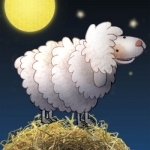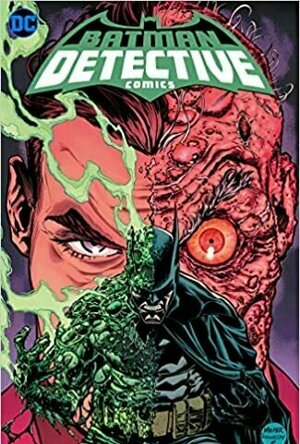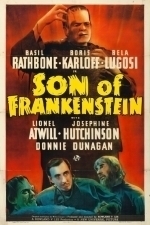
Nighty Night! - The bedtime story app
Book and Education
App
The most popular bedtime story on the App Store! Over 4 million downloads. „App of Year“...

Coloring Book For Adults- Stress Free Coloring App
Book and Games
App
Rediscover the simple relaxation and joy of coloring! Plunge into a fairy world of coloring with...

Blueprint Entrepreneur Magazine - Actionable content for entrepreneurs on marketing, sales, lean startup, pricing, blogging, community building and more. Your action packed guide to business success principles all in one inspiring mag.
Business and Magazines & Newspapers
App
Want the real actionable strategies of entrepreneurship? Get the real stories of struggle and...
If I Were You (Inside Out, #1)
Book
How it all started… One day I was a high school teacher on summer break, leading a relatively...
Joe Goodhart (27 KP) rated Batman: Detective Comics, Volume 5: A Lonely Place of Living in Books
Nov 30, 2020
The ride thus far has been quite good! Tynion's treatment of Batman gives us a more faceted aspect of the Dark Knight. Yes, there is still the "Dark" to his "Knight", but there is also a bit of humanity, like the way he is in regard to Tim Drake, as well as Stephanie Brown/Spoiler. It reminds of what I liked most about the character as I was growing up in the 80s and 90s, something that appears to have been forgotten as Tom King continues to present a Batman that really was not needed! I look forward to him taking over from King on the BATMAN main book!
Spoiler, unfortunately, was still kinda mopey and angst-y in this volume as well. I dunno. When she came on board as the fourth Robin and then became the fourth Batgirl, I passed on it. It really did not have any attraction for me. However, in the first three volumes of "Rebirth" DETECTIVE COMICS, before Tim was grabbed by Mr. Oz (or was it Dr. Oz? lol), she was quite likeable, even kinda fun. After the whole "Tim Incident", the suck-itude was strong and hard! Hopefully, she will be more herself in Tynion's final volume of 'TEC!
The story was quite good, as it dealt with Tim Drake, and his role in the DCU since Dr. Manhattan made those missing 10 years go bye-bye. At points, it felt very much like a hackneyed plot element, but it still was not that bad. Not great, mind you, unlike the previous volumes, but not the worse treatment (that goes to King) of the Batman fam!
The other element that left this off my "Favorites" shelf, as well as only as high as 3 Stars, was the art from Eddy Barrows. He had some really great backgrounds and figure shots, but his faces? Um, no. Several times it looked like Tim was grinning when he should not have. Also, there were some other "that's not right" facial moments for much of the other supporting characters. I think he is a good artist, but I think whoever was editing that run should have been more aware of that!
Now, Alvaro Martinez? Perfect! His style was perfectly suited to Gotham City and the world of Batman. I would have loved him for the whole volume instead of the little bit he had. Hmm.. Maybe Tynion IV can bring him along for his upcoming run on BATMAN? #hopeful
So, yeah, I <i>liked</i> "A Lonely Of Living", but I didn't <i>love</i> it, dig? There was some good stuff, but overall, I would likely not want to re-visit it at a later date. Ah well, on to FALL OF THE BATMEN..
Matthew Krueger (10051 KP) rated Son of Frankenstein (1939) in Movies
Oct 9, 2020
The plot: Baron Wolf von Frankenstein (Basil Rathbone) is determined to prove the legitimacy of his father's scientific work, thus rescuing the family name from disgrace. With the help of Ygor (Bela Lugosi), a grave robber, Wolf successfully reanimates the monster (Boris Karloff) his father originally brought back from the dead. But when several villagers are killed mysteriously, Wolf must find the culprit in order to vindicate his creation, or face the possibility that he may be responsible.
Universal's declining horror output was revitalized with the enormously successful Son of Frankenstein, in which the studio cast both stars.
After the ousting of the Laemmles from Universal and the British embargo on American horror films in 1936, Karloff and Lugosi found themselves in a career slump. For two years, horror films were out of favor at Universal Studios. On April 5, 1938, a nearly bankrupt theater in Los Angeles staged a desperate stunt by showing Frankenstein, Dracula and King Kong as a triple feature. The impressive box office results led to similarly successful revivals nationwide. Universal soon decided to make a big-budget Frankenstein sequel.
Son of Frankenstein marks changes in the Monster's character from Bride of Frankenstein. The Monster is duller and no longer speaks, explained by being injured by a lightning strike. The monster also wore a giant fur vest, not seen in the first two Frankenstein films, perhaps to add color to his appearance when the film was planned to be shot in color. He is fond of Ygor and obeys his orders. The Monster shows humanity in three scenes: first when he is disturbed by his image in a mirror, especially when compared to the Baron. Next, when he discovers Ygor's body, letting out a powerful scream, and later when he contemplates killing Peter but changes his mind. While the first two films were clearly set in the 1900s, this film appears to take place in the 1930s, judging by the appearance of a modern automobile.
Peter Lorre was originally cast as Baron Wolf von Frankenstein, but he had to leave the production when he became ill. Replacing Lorre was Basil Rathbone, who had scored a major triumph as Sir Guy of Gisbourne in The Adventures of Robin Hood, released the previous year.
According to the documentary Universal Horror (1998), the film was intended to be shot in color and some Technicolor test footage was filmed, but for artistic or budgetary reasons the plan was abandoned. No color test footage is known to survive, but a clip from a Kodachrome color home movie filmed at the studio and showing Boris Karloff in the green monster makeup, clowning around with makeup artist Jack Pierce, is included in the same documentary.
Its a excellent universal monster film.
Anyway, the story is about 17 year old Baki Hanma. A martial artist, who won an underground tournament, who is now targeted by 5 death-row inmates. Other members of the underground tournament take Baki's side to fight against them. That's pretty much it.
Each character seems to have a unique fighting style or ability & each character has their own special look. But no matter the look, these characters are ugly. I mean real ugly. They may be the most grotesque characters I've ever seen on film. Almost every one has a ridiculously unrealistic over-muscular body. It's as if a 10 year old drew a bodybuilder. Everyone's hands look like balloons, with marbles as knuckles. Everyone's feet look like a rock with tiny grapes as toes. Hideous faces & disturbing eyes. Even Baki, who is supposed to be good looking, looks overly glam. Again, like a 10 year old's drawing. As for the animation, it's not very good. Most of the show is two characters facing each other & talking crap to each other before finally, someone punches or kicks & then it's just a still shot of them hitting the other with a white streak, faking movement. In the cases where we actually see them moving, the animation jarringly switches to the horrible hand-drawn CGI animation that I can't stand.
As I mentioned, each character has their own style of fighting. Whether it's karate or judo or hidden weapons or weapons hidden inside the body, etc... So, there's lots of variety. The show is for mature audiences due to the gore (lots of dismemberment, eye popping, etc...) & nudity. So, no kids, ok?
But here's the main problem I have. I don't care about the characters. I don't care about Baki. In fact, if you pay attention, he's not in most of the series. And when he is, most of the time he doesn't do anything. This show also has one of the most unintentionally hilarious scenes I've ever seen & that his sex scene. He's never had sex before & we get to hear his thoughts. It's almost like the writer never had sex either. I was laughing out loud.
So, why did I watch? Well, so I had a new anime to talk about with my friend. And although I said I don't care about the characters, I still want to see what happens. I would say the show is geared towards men, as there is only one female character & she's played like a stereo-typical damsel in distress. I have 3 episodes left to watch & no sign of a female fighter. I say give it a shot if you want some mindless ass-kicking fluff.

The Halloween Oracle
Lifestyle and Reference
App
Harness the eerie power of Halloween every night of year with this stunning, accurate Oracle deck. ...

Foliobook Photo Portfolio
Photo & Video and Productivity
App
Foliobook is the clean and minimal ipad portfolio app for photographers, agents, designers, models,...




